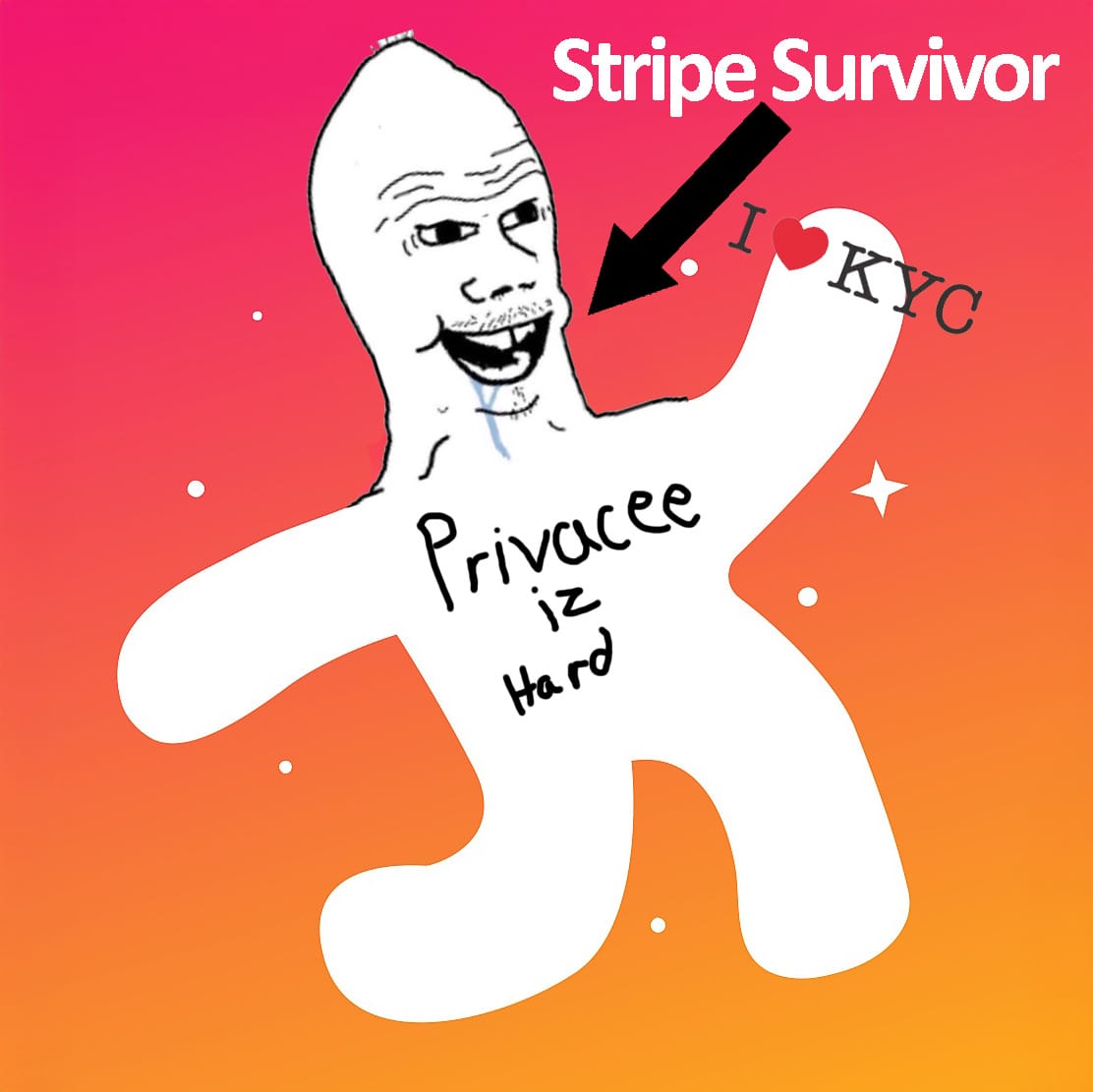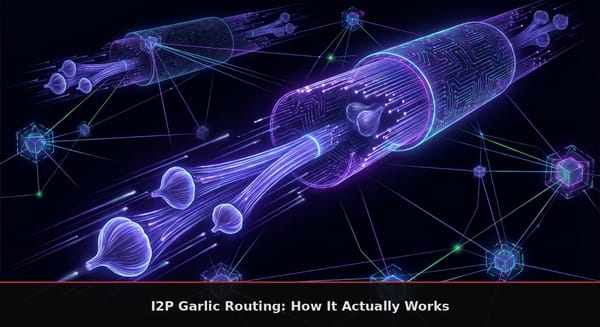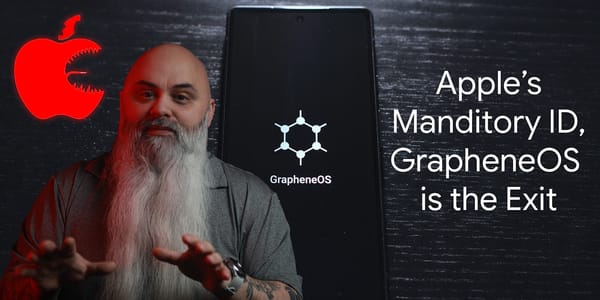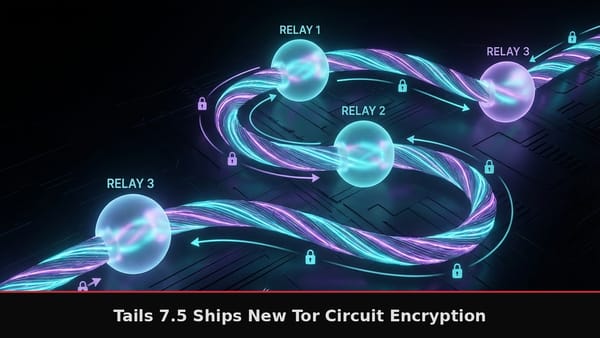Odysee Built Their Own Blockchain But Can't Install XMRChat
Odysee spent 2023-2024 migrating blockchains and building AI trading bots yet somehow couldn't spare a weekend to integrate Monero payment support that darknet markets implemented in a week back in 2019.

First off, I say this as content creator on Odysee. I've been one for a bit.

I have a bunch of useless LBC to prove it:

I was on X recently calling out how OpenAI keeps killing projects that threaten centralized control Rumble taking on Comet browser, Odysee never adding Monero support, OpenAI rushing half-baked video coding tools.

Someone named David Black @biomance jumped in to defend Odysee: "@OdyseeTeam not adding Monero wasn't as important as the other shit they had to deal with first. Not really fair- might still happen. Agreed with the rest though."

It merited an article, let's take a look at 'the other shit'.
Spoiler: it was shit.
It should be noted I tell them all the time to implement XMR.
Actually it's the one thing I try to say EVER time I see them post on X.






Between the SEC lawsuit settlement in July 2023 and their June 2024 Forward Research acquisition, Odysee spent the time migrating 7 million users to Arweave blockchain, building "hyper-parallel computing" infrastructure to run LLMs inside smart contracts for AI trading agents, and developing a "Decentralized Media Ecosystem" yet somehow couldn't find a weekend to integrate XMRChat (the open-source Monero tipping platform launched August 2024 with zero platform fees and existing OBS integrations on GitHub) or use any of the dozen ready-made Monero payment gateways like BTCPay Server, NOWPayments, or Monero Integrations that provide plug-and-play modules requiring nothing more than a wallet address and view-key.
A complete blockchain architecture migration, on-chain AI development, and corporate restructuring apparently took less engineering effort than the 2-3 day task of integrating the most privacy-focused cryptocurrency payment system that already has working code, documentation, and requires no third-party processors.
Darknet markets obviously are illegal operations with anonymous teams, zero VC funding, and operators facing decades in prison and THEY can implement Monero support within one week when AlphaBay did it in 2016, just two years after Monero launched.

By 2019, three of the five largest darknet markets accepted Monero. White House Market went Monero-only in December 2020. These operations run with minimal teams under constant law enforcement pressure, yet they prioritized financial privacy. Meanwhile, Odysee a legal, VC-backed platform claiming to be "censorship-resistant" and "decentralized" couldn't manage what criminals accomplished in a week with vastly fewer resources.
Pathetic.
Let's talk about what Odysee actually is...
This isn't some scrappy startup that doesn't understand cryptocurrency. LBRY Inc., Odysee's parent company, was founded in 2015 by developers with computer science degrees who built an entire custom blockchain from scratch.
They created their own cryptocurrency (LBC - LBRY Credits) with a 1 billion token supply, proof-of-work consensus using SHA512/SHA256/RIPEMD hash functions, and a complex claim system that stored content metadata directly on the blockchain.

They built cryptocurrency wallets with local storage and cloud sync. They handled mining infrastructure, integrated with centralized exchanges like MEXC, implemented automatic fiat conversion through Stripe, and managed tip routing between LBC and traditional bank accounts. The team included senior blockchain engineers who worked in C++ and C# on protocol-level development.
In October 2021, they integrated Stripe for fiat currency donations, requiring creators to link bank accounts. By 2025, they successfully integrated USDC stablecoin payments and Arweave's AR token through Wander Wallet. So this is a company that built an entire blockchain, created their own cryptocurrency, and integrated multiple payment processors but adding Monero was somehow too complex?
Here's what they were actually doing from early 2023 through mid-2024.
LBRY Inc. lost their SEC lawsuit in July 2023, accumulating several million dollars in debt before shutting down in October 2023. But before that happened, they'd started negotiations with Forward Research about migrating the entire platform from the LBRY blockchain to Arweave. In early 2023, this migration work began in earnest. By June 2024, Forward Research acquired Odysee to prevent the platform from shutting down completely.
Throughout 2024, Odysee's CEO Julian Chandra confirmed they spent "over the past year" building what he called "the next evolution of Odysee on Arweave and AO." That AO protocol integration launched in February 2024, bringing what they marketed as "hyper-parallel computing" that could run LLMs inside smart contracts.

The pitch was that these AI agents could execute "autonomous" trading of creator tokens based on "dynamic instructions." They built a Decentralized Media Ecosystem (DME) with structured governance for collectives. They launched Premium ($0.99/month) and Premium+ ($2.99/month) subscription tiers. By May 2025, they unveiled Portal, a decentralized publishing platform with custom commenting systems, messaging functions, and content moderation tools, partnering with the Independent Media Alliance.
This represents thousands of engineering hours.
Migrating 7 million users and their content libraries from one blockchain to another while maintaining uninterrupted service is not trivial. Building infrastructure that runs large language models inside smart contracts for content trading algorithms is experimental bleeding-edge work.
Creating an entire publishing platform with autonomous operation and native syndication compatibility took over a year of focused development. Their GitHub shows 14,574+ commits across repositories with 174+ contributors working on frontend, API, mobile apps for iOS and Android, and even a Roku application.

Payment gateway services like NOWPayments offer API key generation and plugin embedding that takes less than a day to integrate, charging a 1% transaction fee. BTCPay Server with its community-maintained Monero plugin is completely free and self-hosted, requiring a few hours to set up with comprehensive documentation available. XMRChat, which launched in August 2024 specifically for content creator tipping, is fully open-source on GitHub with setup requiring 2-4 hours for experienced developers.


If you wanted to build custom integration from scratch without using any existing tools, you'd use monero-wallet-rpc, which exposes complete wallet logic via JSON-RPC over HTTP. It's the industry-standard JSON-RPC 2.0 protocol. A basic API call looks like curl http://127.0.0.1:18082/json_rpc -d '{"jsonrpc":"2.0","id":"0","method":"get_balance"}' -H 'Content-Type: application/json'. That's it. For a team that built custom blockchain infrastructure with proof-of-work mining, implemented complex claim-based transactions, and successfully integrated multiple cryptocurrencies including their own custom token, USDC, and Arweave's AR, this would take days to a week at most for a basic implementation.

The Monero Integrations project provides libraries for PHP, Python, Java, C++, JavaScript, and Rust. The documentation is comprehensive. The community support is active. Over 1,600 businesses accept Monero as of 2024, including hosting providers, VPN services, and content platforms. The technology is proven, the tools are available, and the implementation is straightforward for any competent development team.
Now, in 2025, Odysee dropped Stripe specifically because Stripe was censoring creators. Along with Stripe denying service to some Odysee creators they demanded that Odysee "restrict" (demonetize) users who didn't even use Stripe, purely because those users "don't align with Stripe's policies." This forced Odysee to adopt third-party moderation tools to target creators based on payment processor content preferences. They announced this change with language about fighting censorship and preserving creator freedom.

But when they replaced Stripe, they chose USDC (a transparent, traceable stablecoin) and Arweave's AR token. Both are completely traceable on public blockchains. They took their platform from being monetized through a censorious payment processor linked to bank accounts, and moved it to... transparent cryptocurrency that can be tracked by anyone with a blockchain explorer. Which in many ways is worse, and more invasive. For a platform that markets itself as "decentralized," "censorship-resistant," and "privacy-focused," this reveals exactly what their priorities actually are.
The Southern Poverty Law Center documented in 2021 that $336,000 flowed through Stripe-linked bank accounts on Odysee despite their claims about being a "private" platform (if they used XMR...).
That same year, XMRChat code sat available on GitHub offering zero-fee, truly private, wallet-to-wallet transfers that require no third-party processors and can't be censored by Stripe or anyone else.

David Black said Monero:
wasn't as important as the other shit they had to deal with first." The chronology makes it clear what "the other shit
actually it was: experimental AI features running LLMs in smart contracts, a complete platform migration to a different blockchain, building publishing infrastructure with "autonomous agents" for creator token trading, developing Premium subscription tiers, and launching a partner network for independent media. These were choices.
Every hour spent building those features was an hour not spent implementing privacy-preserving payments that align with their stated mission.
Monero integration wouldn't have prevented the Arweave migration.
It wouldn't have blocked the AO protocol work.
It wouldn't have stopped Premium subscriptions or Portal development.
A competent team could have integrated XMRChat or NOWPayments in a sprint while other teams worked on blockchain migration.
The fact that they didn't reveals a simple truth: they never wanted to.
The complexity excuse is just corporate speak for:
"this wasn't our priority because we never cared about actual financial privacy."
Actions speak louder than words.




